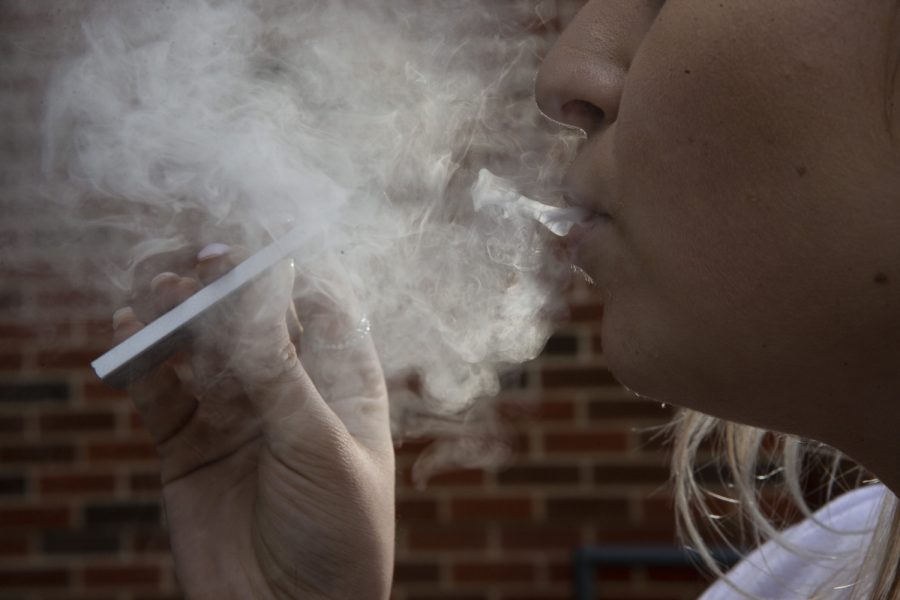The Iowa City City Council issued a moratorium, or temporary suspension, of new retail tobacco licenses until Jan. 1, 2025, to complete a study on how to best mitigate nicotine and tobacco’s effects on the city’s public health.
The city has seen an increased number of retail outlets that primarily sell tobacco, nicotine, and vapor products, according to the city council agenda. Because of this, the city council wants to study ways to mitigate the impact of tobacco and nicotine-related products.
Councilor Andrew Dunn said there were other concerns with the number of tobacco shops in Iowa City, including the sale of Kratom, which are leaves from a tropical tree found in Southeast Asia. Dunn said that he’d be open to further investigation into the issue.
“I think a thorough investigation, while we figure out this process with tobacco permitting, into what we can do about other things that are going on, just be more broad. Because there’s a lot of bad stuff going on,” Dunn said.
According to the council’s agenda, possible measures the city could take include capping the number of retail tobacco permits and imposing separation requirements from schools or between retail outlets.
RELATED: UI study shows increase in student vaping, energy drink consumption
The National College Health Assessment released a report in 2019 that found 26.8 percent of University of Iowa undergraduate students used an e-cigarette in the last 30 days. A survey conducted by the UI College of Public Health in 2019 found that 50 percent of seniors at a large Iowa City high school responded ‘yes’ to the question of whether they had ever vaped.
According to the CDC, 2.13 million U.S. middle and high school students used e-cigarettes in the past 30 days, which includes 4.6 percent of middle school students and 10 percent of high school students.
Retailers with existing tobacco permits are still eligible for renewal during the moratorium.
Iowa City Attorney Eric Goers said he would draft a resolution in July following a discussion with the council about changes they’d like to see to policy surrounding tobacco sales.



